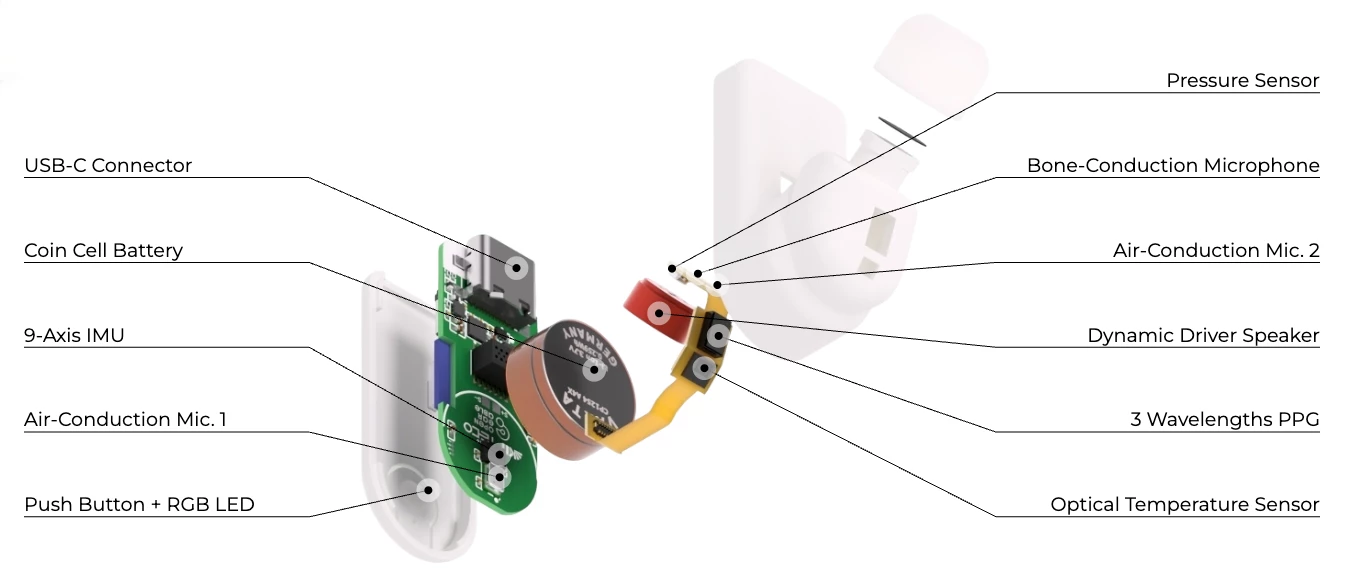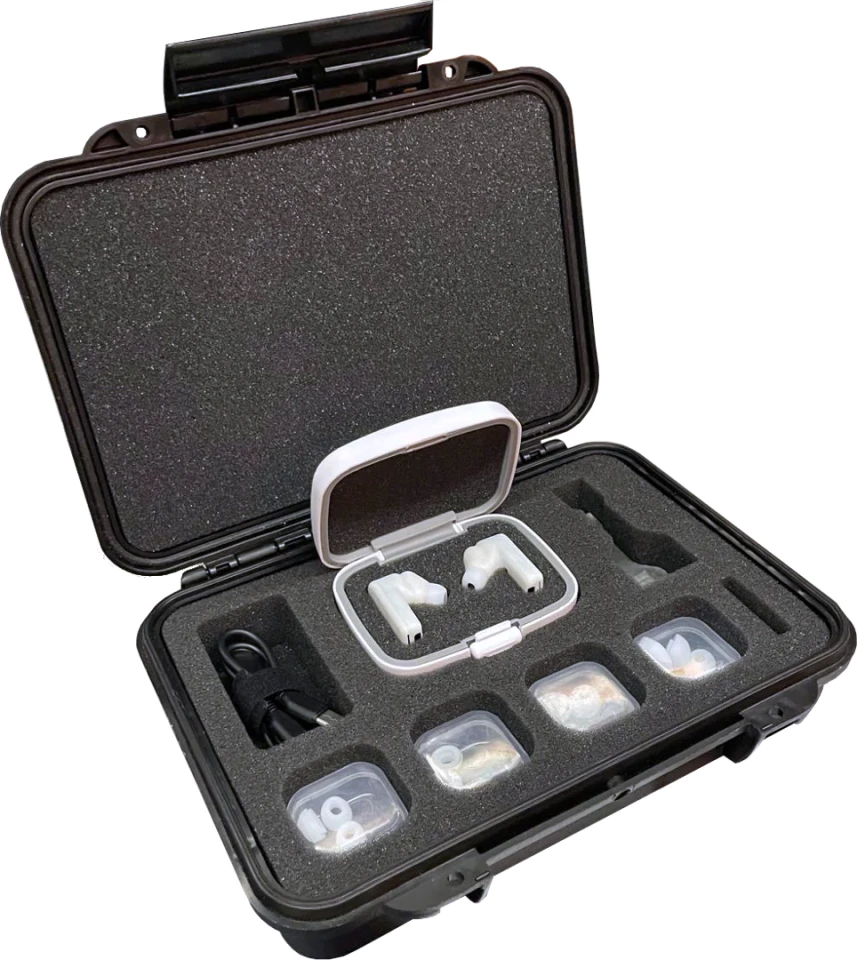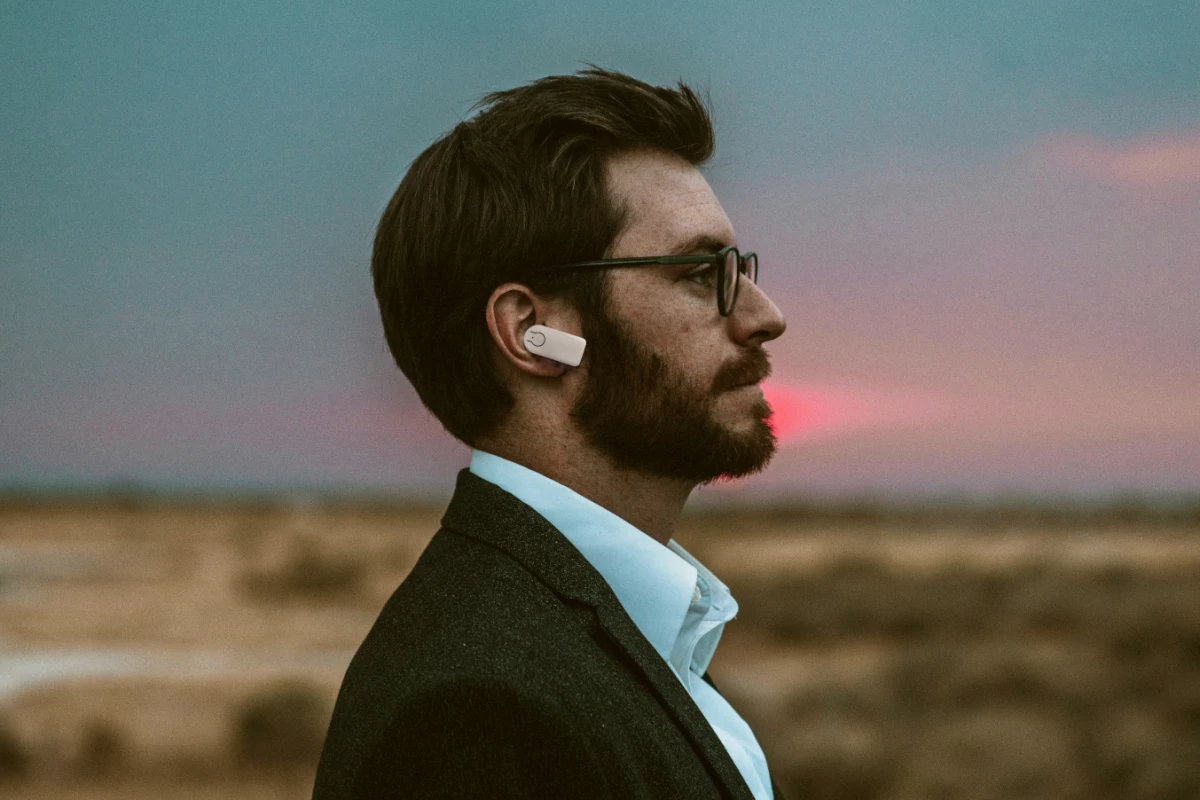If you're gonna be inserting an object into one of your bodily orifices anyways, why not have it check up on you while it's in there? That's exactly what the OpenEarable 2.0 earphones do, using integrated sensors to measure over 30 physiological parameters.
Now available for preorder at a price of €2,348 (about US$2,566), the OpenEarables were developed by Dr. Tobias Röddiger and colleagues at Germany's Karlsruhe Institute of Technology (KIT). The earphones and their accompanying software are both open-source, meaning that third parties are free to tweak them and share the results with other users.
Along with their obvious usage in the field of medicine, the OpenEarables could conceivably also be utilized in applications such as workplace safety or athletic performance analysis.
And yes, the things can indeed play back stereophonic music streamed from a paired smartphone. An app on that same phone processes and displays sensor data transmitted by the OpenEarables.
Importantly, Röddiger tells us that the earphones are capable of gathering their physiological data and playing music at the same time – one doesn't interfere with the other. However, it should be noted that the earphones are only compatible with Android phones utilizing the Bluetooth LE Audio protocol, which iPhones currently don't support.

So, just what can the OpenEarables actually measure? Well, here are a few examples …
Utilizing two infrasound/ultrasound microphones – one facing out of the ear canal, and one facing into it – they can track the user's cardiac activity and authenticate their identity. An onboard bone-conduction mic, on the other hand, can tell when the user is eating, mouthing silently-spoken words, or grinding their teeth while asleep.
There's also a blood-oxygen-level-tracking pulse oximeter – which can be used to detect sleep apnea, and to measure stress or energy expenditure – along with an optical skin temperature sensor for gauging body temperature or tracking ovulation. Other sensors include an ear canal pressure sensor for detecting eating and tongue gestures, and a 9-axis IMU (inertial measurement unit) that tracks respiration rates and workout progress.

One 45-minute USB charge of each earphone's battery should reportedly be good for up to eight hours of runtime, depending on usage.
"It was found that the platform captures physiological data very accurately and reliably and that its measurements yield more precise results than the established standard measurements," says Röddiger. "With OpenEarable 2.0, we can not only improve the current state of wearable technology, but also open up completely new fields of application."
And just for the record, these aren't the first body-monitoring earphones we've seen. Previous examples have been able to identify their user, assess brain activity, analyze sweat, and diagnose ear conditions.
Sources: KIT, OpenEarable





